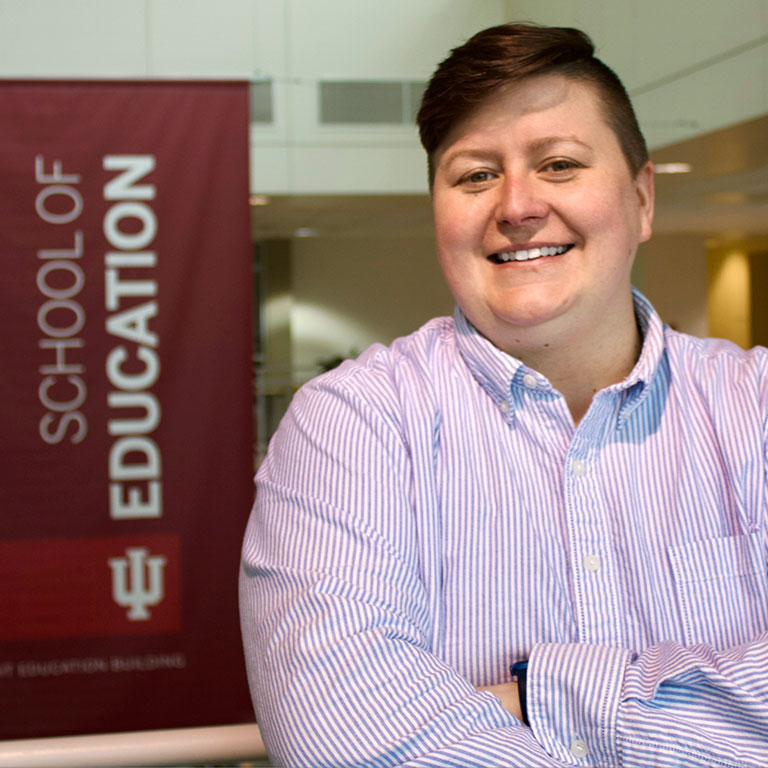A new study hopes to find new ways for higher education and student affairs professionals to support LGBTQ+ college students while also shifting the narrative about their postsecondary education experiences.
The study includes Cindy Ann Kilgo, Associate Professor of Higher Education and Student Affairs and Interim Co-Director of the National Survey of Student Engagement at Indiana University, who will serve as principal investigator. Co-PIs include Jodi Linley, Associate Professor of Higher Education and Student Affairs at the University of Iowa, and Alex Lange, Assistant Professor of Higher Education at Colorado State University. The team received a grant worth nearly $500,000 from the Spencer Foundation to fund their work.
The idea for the study stemmed from several projects the team was involved in, including the 2015 National Study of LGBTQ Student Success that focused on how LGBTQ+ students succeed in college, and a study in 2018 titled, “The Journeys of Transgender Students’ College Choice Processes and Transitions to Campus” exploring trans college students’ anticipatory socialization and socialization processes over four years of college. The studies marked a major turn in how researchers examined LGBTQ+ college students’ experiences. Up until that point, Kilgo said, the majority of research on LGBTQ+ students was focused on the negative campus climate present on college and university campuses.



